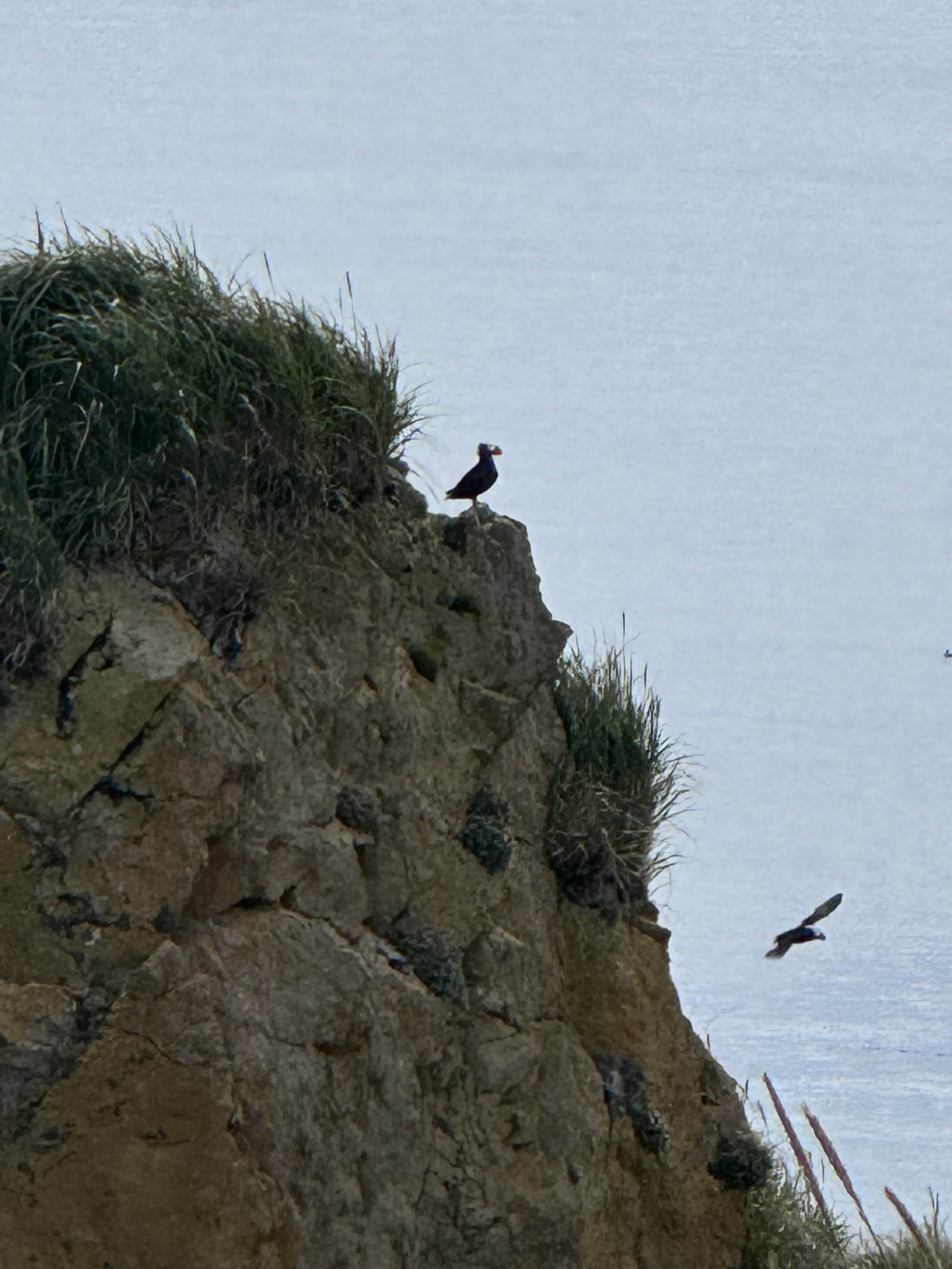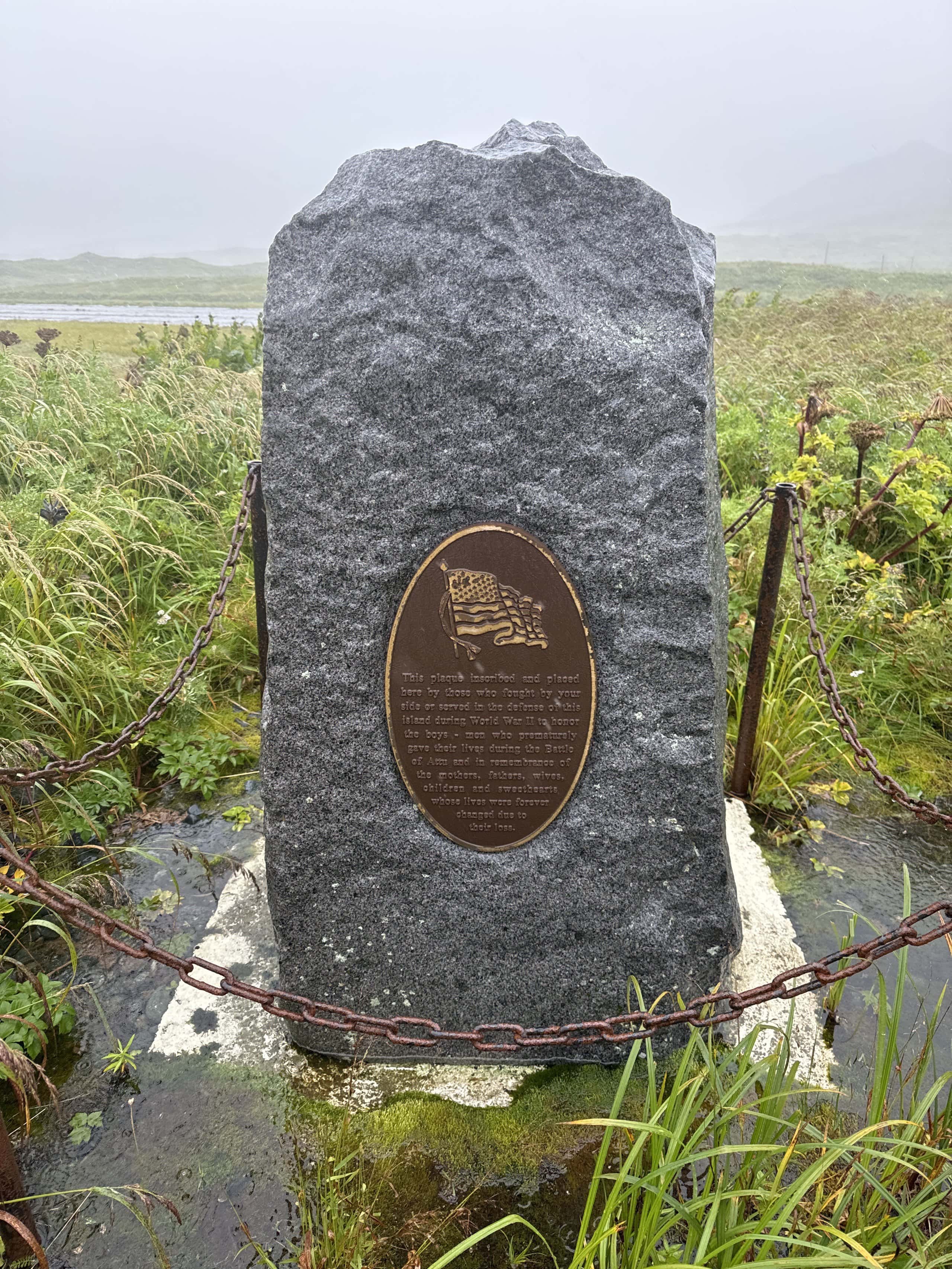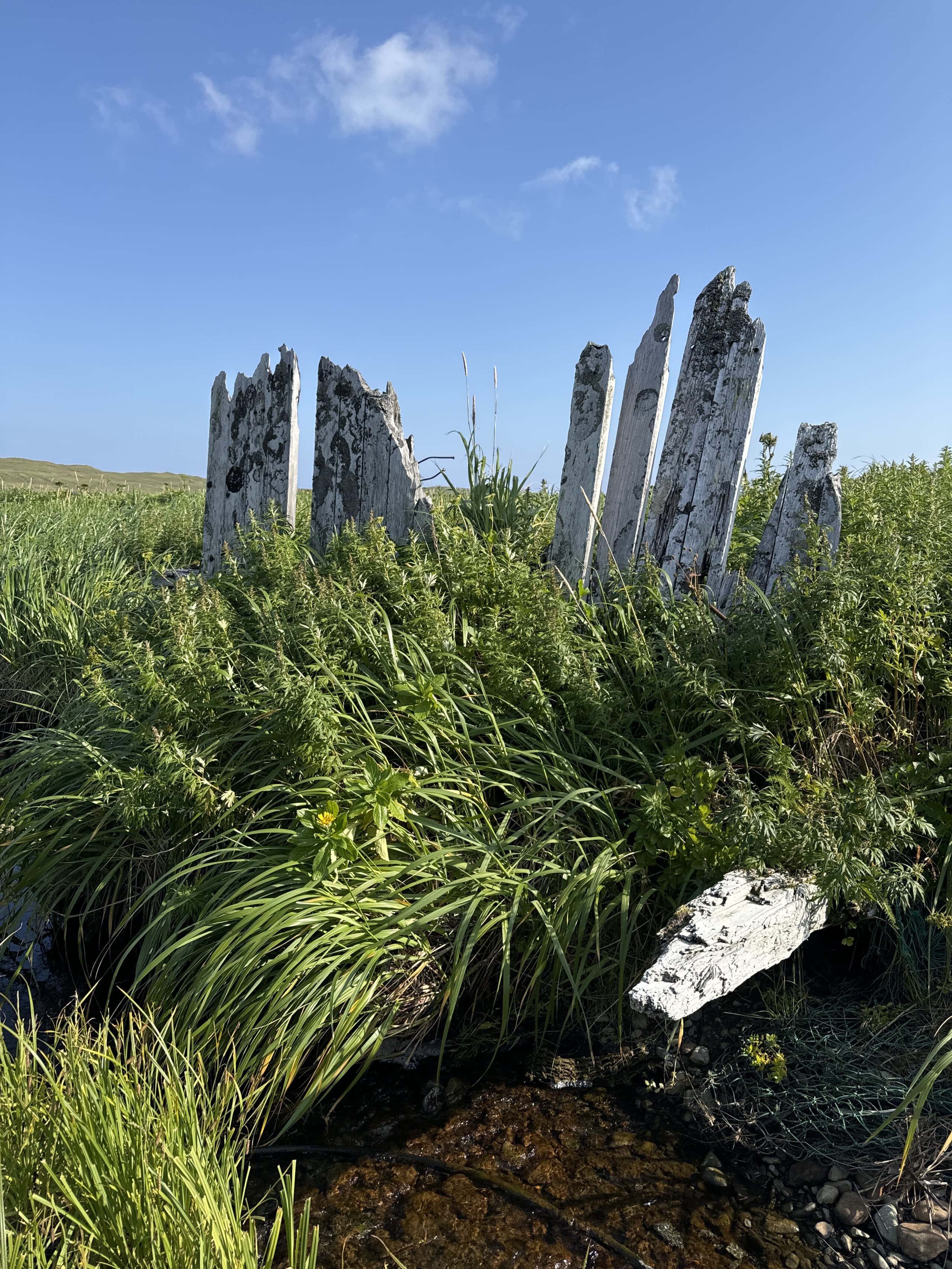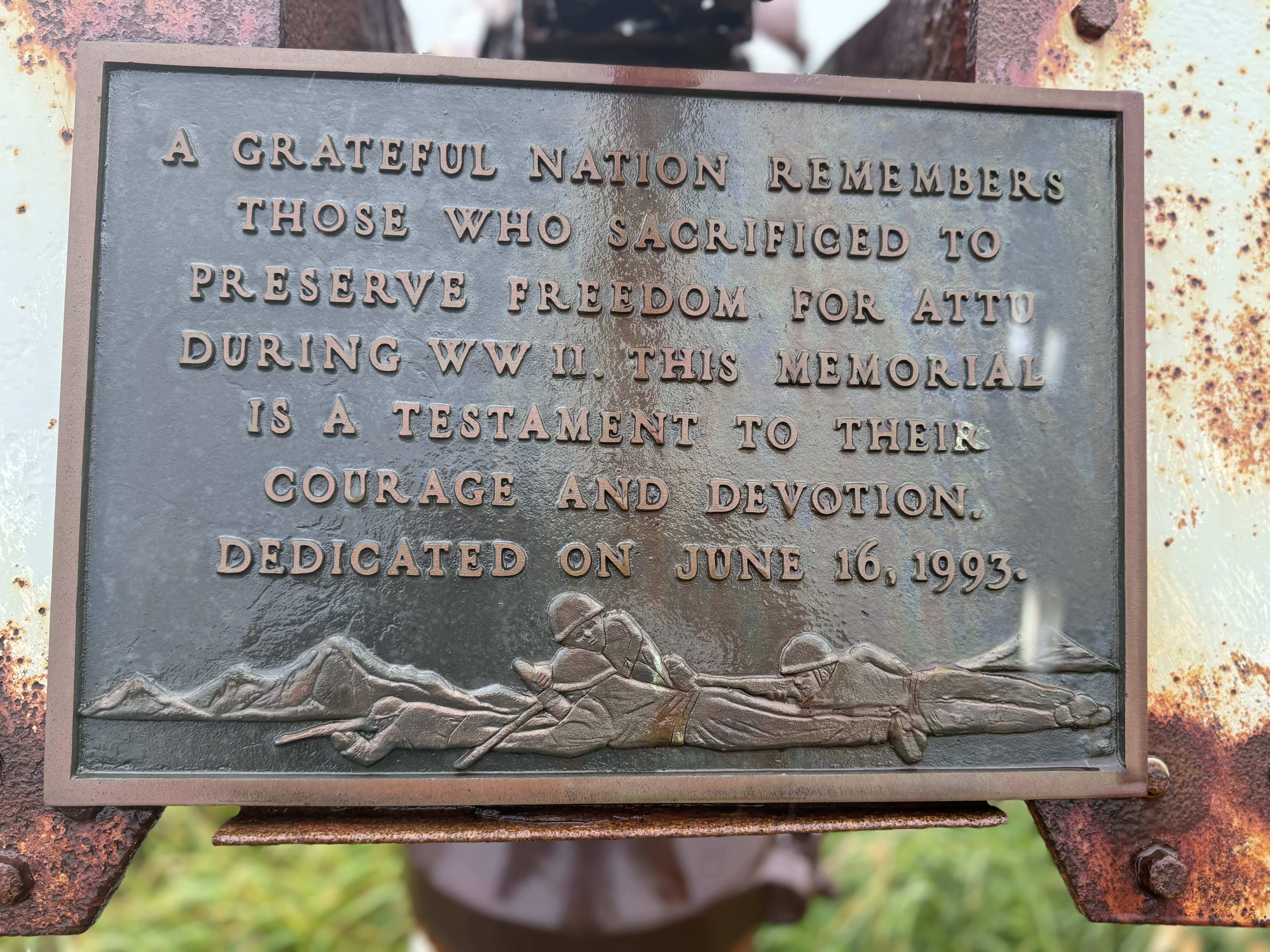Attu Island, steeped in history and rugged natural beauty, was the backdrop for a profound mission this past August: an international expedition to honor those who perished during World War II and strengthen cultural connections between Japan and the Aleut people.

The expedition was led by the U.S. Fish and Wildlife Service (FWS), and Aleut was joined by representatives from Atux Forever and Japanese organizations. The journey began on August 17 with a flight from Anchorage to Adak, followed by boarding Research Vessel (R/V) Tiglax.
“This was more than an excavation,” said Ben Leon-Guerrero, Aleut’s Lands Manager, who chronicled the journey. “It was an opportunity to reflect on the untold stories of the Aleutians and foster reconciliation.”
During the two-day voyage to Attu, participants prepared for the mission with safety trainings and reading educational articles. While navigating the waters near Little Sitkin, the group was reminded of the region’s untamed beauty when they encountered a pod of sperm whales.
The journey’s first major stop at Kiska Harbor was marked by delays due to remnants of Typhoon Ampil. Though unable to disembark, the team used the time to discuss shared histories and watch Tanadgusim Adan Chiilulix: A Journey Home, a film that documents a project that brought Unangax̂ survivors of World War II back to the communities they were forced to evacuate during the war.
On August 21, the Tiglax anchored in Chichagof Harbor, just offshore from the former Attu Village site. Guided by historical records, the team identified two grave sites. Among the discoveries was a stake inscribed with Japanese characters translating to “Saki,” as well as two partial sets of remains.



The significance of this trip was exemplified during a moment of silence at Massacre Bay, led by Helena Schmitz of Atux Forever, to honor the lives lost during World War II. “This moment highlighted the importance of healing—between nations and within communities,” Leon-Guerrero reflected.
Despite high winds and challenging terrain, the delegation continued mapping efforts and documented environmental changes across Attu. Observations of vibrant puffins and sea lions served as reminders of the region’s ecological importance, even amidst its historical weight.
A Journey of Reconciliation
As the R/V Tiglax departed Attu and passed Kiska Island, participants shared their reflections on the journey’s impact. The expedition was not only a recovery mission but also a bridge between cultures and a commitment to preserving the stories of the Aleutians with dignity and respect.
“This expedition underscores the importance of historical preservation and cross-cultural dialogue,” Leon-Guerrero emphasized. “It’s a reminder that healing requires us to confront our shared past while looking toward a more connected future.”
As plans for future collaborations take shape, this journey to Attu stands as a testament to resilience, the power of reconciliation, and the enduring legacy of the Aleutians.
Explore

